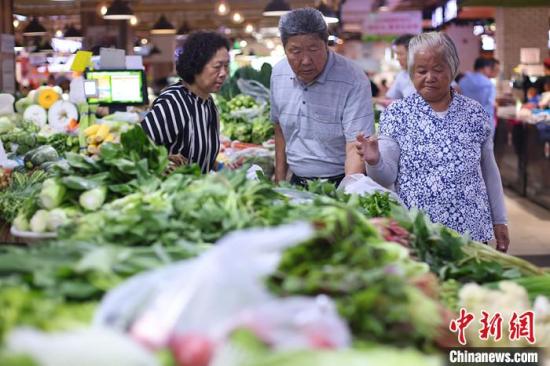China's CPI up 0.5% y-o-y in July
China's consumer price index (CPI), a main gauge of inflation, edged up 0.5 percent year-on-year in July, data released by the National Bureau of Statistic showed on Thursday. It marked the sixth consecutive month that the reading records an expansion.
NBS statistician Dong Lijuan attributed it to continuous pick-up in domestic consumer demand and the impact of high temperatures and rainfall in some regions which drove up food price.
The index also accelerated from a 0.2-percent year-on-year growth recorded in June. On a monthly basis, China's CPI also gained 0.5 percent in July, reversing from a contraction of 0.2 percent in June. The month-on-month growth rate is "relatively high" compared to the same period in recent years, according to Dong.
Food price remained the same in July. The price of pork, a staple meat in China, rose 20.4 percent in July compared with a year earlier, while the price of fresh vegetables and meat also rose 3.3 percent and 0.8 percent respectively year-on-year in July.
Non-food prices rose 0.7 percent year-on-year, lifting the CPI by 0.54 percentage points.
The core CPI, deducting food and energy prices, went up 0.3 percent in July compared with that of June, making the reading "higher than the average level for the same period in the past decade." In year-on-year terms, the index rose 0.4 percent in July, maintaining a moderate increase.
Chinese observers predicted that China's CPI will continue showing "moderate rebound" in the second half, thanks to the release of more consumption demands, food price rise and last year's low base effect.
Research released by the Peking University National Economic Research Center expected China's CPI to grow by 0.4 percent year-on-year in 2024, edging up from the 0.2-percent expansion registered in 2023.
The NBS data also showed that China's producer price index (PPI), which measures costs for goods at the factory gate, dropped by 0.8 percent year-on-year in July. NBS said that it was a result of "insufficient market demand and the decline in prices of some international commodities, among other factors."

